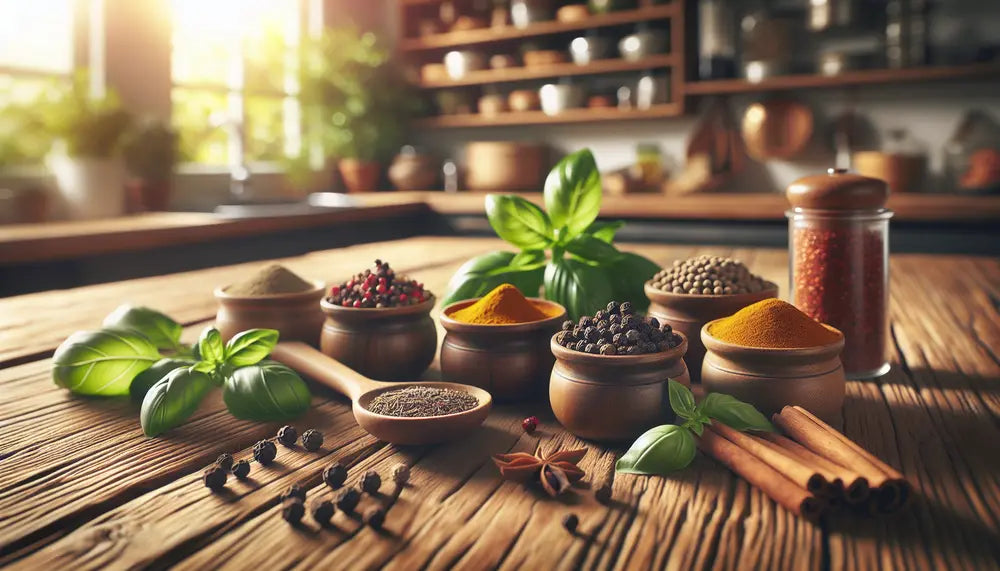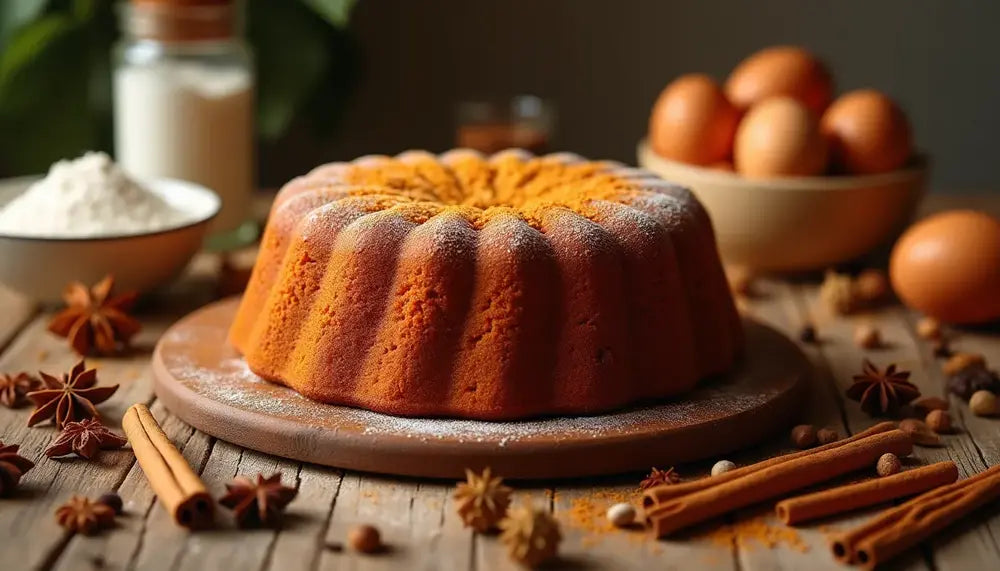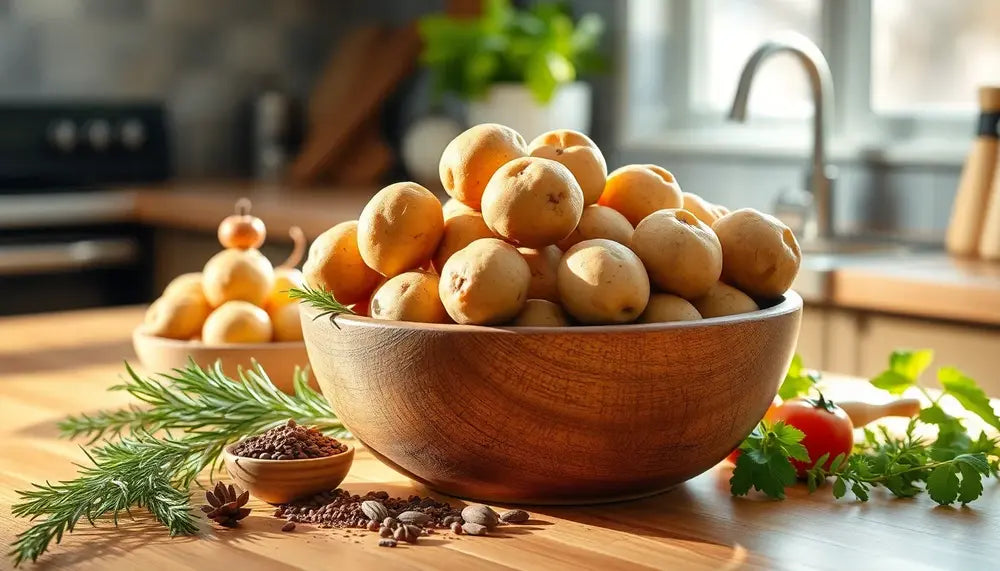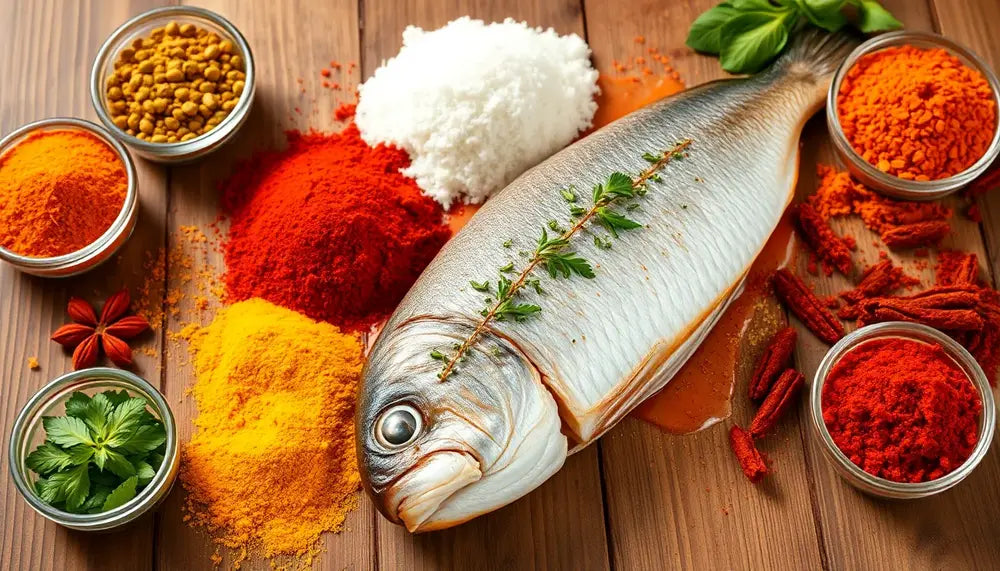The importance of spices in the kitchen
Spices play a role central role in the kitchen and are essential for bringing out both flavor and aroma in our dishes. Not only do they serve to enhance flavor, but they can also provide health benefits by aiding digestion and helping to preserve food. Proper use of spices can transform a simple dish into a culinary masterpiece.
Knowing the properties and versatility of spices is crucial to using them effectively. Each spice has its unique profile, which makes it ideal for refining certain dishes. From spicy to mild, from sweet to savory – the range is enormous and offers countless possibilities for creative kitchen experiments.
Whether it's about marinating meat dishes, seasoning soups or giving baked goods a special touch, spices are the secret ingredients that... deeper level of flavor and ensure an appealing aroma. They allow us to authentically prepare and reinterpret cultural dishes, offering both home cooks and professional chefs countless paths to culinary self-realization.
Basic spices for every household
Every household should have a basic supply of spices, which forms the basis for a variety of dishes. These essential spices make it possible to cook spontaneously and in a variety of ways without having to constantly buy additional ingredients.
- Black pepper: Essential for almost every dish, from steaks to salads.
- Salt: Improves the flavor of all ingredients and is useful in both refined and coarse forms.
- Garlic powder: Provides a convenient, instant way to add savory flavor to dishes without peeling fresh garlic.
- Paprika powder: Adds warmth and color, particularly popular in Hungarian and Spanish cuisine.
- Turmeric: Known for its health benefits and intense yellow color.
- Oregano: A must for Italian dishes, perfect for sauces and marinades.
Investing in these fundamental spices ensures that you are prepared to prepare a wide range of recipes. They provide a solid foundation on which to build and experiment to develop your own culinary creations. Adding these basic seasonings to your cooking ensures that your dishes always packed with flavor are.
Versatile spices for international dishes
World cuisine offers an exciting range of flavors that can be created through the use of versatile spices. For lovers of international cuisine, it is worth exploring spices that are rooted in various culinary traditions.
- Cumin: Indispensable in Mexican, Indian and Middle Eastern cuisine, gives dishes a nutty, spicy note.
- Coriander: Both the seeds and the fresh herb are central to Asian, Latin American and North African dishes.
- Ginger: Fresh or dried, ginger is a key element in Chinese, Japanese and Indian cuisine.
- Cinnamon: Known for its use in sweet and savory dishes from the Middle East to North Africa and in Western baking.
- Chilies: Different varieties of chili offer a range of spiciness and are essential in cuisines from Thailand to Mexico.
- Garam masala: A blend of warming spices often used in Indian curries.
Integrating these spices into your kitchen opens up the possibility of authentic taste experiences anywhere in the world to accomplish. Whether you want to recreate a traditional dish or be inspired to create your own creations, by using these versatile spices you can bring real and intense flavors into your dishes.
Fresh vs. Dried Spices: Which is Better?
The decision between fresh and dried spices often depends on the desired flavor profile and practical application. Both forms have their specific advantages and areas of application in the kitchen.
| spice form | Advantages | Ideal for |
|---|---|---|
| Fresh spices | Offer a lively and strong aroma, contain essential oils in high concentration | Fresh salads, sauces, infusions |
| Dried spices | Long shelf life, intense taste, easy to store | Stews, soups, stews |
However, it should be taken into account that the intensity of the aromas of dried spices may decrease over time. That's why it's important to pay attention to this Expiry date Be careful and store spices in an airtight container to preserve their freshness.
Another relevant aspect is getting used to the proportions, as dried spices are often more concentrated than fresh ones. A general rule is to use about a third of the amount of fresh spices when replacing them with dried ones, so about:
1 tsp (teaspoon) fresh spice = 1/3 tsp dried spice
Ultimately, each form offers its advantages and can be selected depending on the type of dish and the desired intensity of the aroma. Experiment with both forms to discover your favorite seasoning profiles.
How to store spices correctly
Proper storage of spices is crucial to preserving their aroma and flavor over the long term. Here are some tips to help you store your spices optimally:
- Dark and cool: Store your spices in a dark and cool place. Strong heat sources such as stoves or direct sunlight should be avoided.
- Airtight: Use airtight containers to protect the spices from moisture and air. This helps preserve the flavors and prevents the spices from clumping.
- Glass container: Glass containers are ideal for storing spices because they do not absorb odors and do not affect the flavor of the spices.
- label: Label the containers with the name of the spice and the date it was stored. Spices should ideally be used within a year to ensure best freshness and potency.
Another important detail is not to put spices near Sources of moisture such as sinks or dishwashers. Moisture can cause spices to clump and form mold.
Smart storage will help you get the most out of your spices and maximize their use in the kitchen. This allows you to maximize the potential of every meal and ensure impressive flavor in every dish.
Tips for combining spices
The art of seasoning combination can take your cooking to a new level. Here you will find tips on how to harmoniously combine spices to create complex and tasty dishes.
- Start small: Start with a small amount and taste the dish again and again. A spice mixture can develop a lot during cooking.
- Sweet and spicy: Combine sweet spices like cinnamon or nutmeg with hot spices like cayenne or black pepper to create a balanced depth of flavor.
- Herbs and warmth: Complement warm spices like cumin and coriander with fresh herbs like coriander leaves or mint for freshness and complexity.
- Tried and tested mixtures: Use classic spice combinations as a basis for your experiments. Examples are Italian herbal mixtures or the French "Herbes de Provence".
An important aspect of combining spices is understanding them Flavor profiles. Each spice has a dominant flavor as well as secondary notes that can be evoked when paired with other flavors. For example, the earthy taste of peppers complements the sweetness of tomatoes perfectly.
Experiment with your own mixtures by grinding small amounts together in a mortar and then adding them to your dishes. By mixing and grinding the spices, the essential oils are released, which leads to more intense taste experiences.
Ultimately, combining spices is an art that requires intuition and practice. Dare to try new things and create your own signature blends that enhance your dishes distinctive do.
Conclusion: Why a good list of spices is essential
A carefully compiled one Spice list is an essential tool for every ambitious chef. It enables one targeted selection and use of spices that can significantly improve the quality and taste of your dishes.
A well-thought-out spice list will help you:
- to create diversity: A wide range of seasonings allows you to cover a variety of culinary styles and tastes, making your cooking more versatile.
- Cultural authenticity: The right spices can help dishes from different cultures taste more authentic and take you on a tasteful trip around the world.
- Optimize nutrition: Many spices offer health benefits, from anti-inflammatory properties to antioxidant effects. The right mix and use of these spices can enrich your diet.
- to encourage experiments: A comprehensive list gives you the freedom to experiment with new spice combinations and develop your own unique flavors.
In addition, such a list allows you to always... organized and efficient are in your kitchen planning. You'll know exactly which spices you have on hand and which ones you may need to stock up on, making your cooking processes run more smoothly and creatively.
Creating and maintaining one individual spice list ensures you are always ready to make every meal an exceptional experience. It is an investment that is reflected not only in the quality of your dishes but also in your culinary skills.
FAQ: Essential spices for every household
Which spices are essential for every kitchen?
Essential seasonings include black pepper, salt, garlic powder, paprika and oregano. These spices form the basis for a variety of dishes in different cuisines around the world.
Why is black pepper so important?
Black pepper is a versatile spice that adds depth of flavor to almost any dish. It has both spicy and slightly spicy notes that can enhance the flavors of other ingredients.
Can you replace fresh spices with dried ones?
Yes, you can replace fresh spices with dried ones, generally using about a third the amount of fresh spices. Dried spices are more intense and condense the flavors, making them particularly useful in some recipes.
How long do spices last?
Spices can have different shelf lives, but it is generally recommended to use them within a year. However, more important than absolute age is storage in a cool, dark place in airtight containers.
How can I best combine spices?
Start small and taste the dish again and again. A popular method is to combine sweet and hot spices to create a balanced depth of flavor. It is also advisable to start experimentally with tried and tested mixtures and slowly venture into your own creations.





Share:
Perfectly Seasoned: The Secrets of a Delicious Bolognese
Preserving quality and taste - tips for storing spices correctly